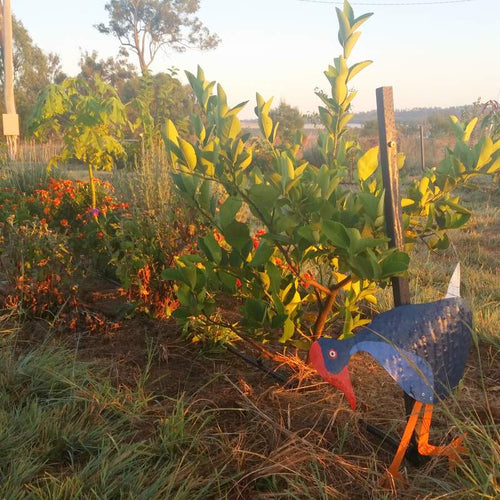Three essential principles of organic gardening
Organic gardening is easy. In fact, once you get your organic garden established, it should be easier and cheaper than "conventional" chemical gardening. The most important thing is to forget everything the chemical companies have told you about gardening. Forget NPK fertilisers, herbicides and pesticides. You need to learn to work WITH nature and gradually nature will start doing most of the work for you. Don't just replace chemicals with organic inputs either. Here's three essential principles to get you thinking differently.
1. Forget fertiliser - feed the soil
I wrote about soil a few weeks ago and my main conclusion was that if you increase organic matter everything else starts to balance. My favourite way to increase organic matter in the soil is compost. And my favourite way to compost is using worms. Worm compost is fool-proof! You just need to set up a worm farm, add worms and kitchen scraps and harvest the compost and leachate. Lately I've also been making compost heaps on empty spots in the garden. I just pull out weeds and heap them up in a pile, add ash from our woodstove and wood shavings from the chicken nesting boxes and in a few months, I have a pile of compost to spread over the garden. - Worm farm kits are available from Biome, click the banner at the end of this post.
2. Control weeds with mulch, not herbicide
I don't really mind weeds in my garden, as they help me to build compost. I do find its a good idea to keep the garden paths free of weeds, and so I keep a layer of mulch on the paths. I also mulch around plants and just pull out any weeds that get too big. If you are feeding your soil, there is no point worrying about weeds taking nutrients from your plants, there will be plenty to go around and the weeds can actually contribute too. Not only does mulch help to control weeds, it also adds organic matter to the soil and helps to retain moisture. On the other hand, herbicide will kill soil microbes and not help you do feed the soil.
For mulch I use:
- woodchips from mulching branches around our property,
- hay that the cattle didn't eat (it does not have to be lucerne!),
- newspaper is really good for paths and it takes a while for the weeds to break through,
- wood shavings from the chicken nest boxes,
- grass clippings if we even mow the lawn.
3. Biological pest control is more effective than pesticides
Biological pest control is about encouraging beneficial insects and birds into your garden. By allowing a natural balance between predators and prey, you let nature take care the pests. Also if you feed the soil, you will find that healthy plants do not get attacked by pests. The best way to encourage beneficial insects is to provide lots of food for them by letting plants flower. Many of the predators will feed on nectar if their prey is not available, so keep them well-fed and you won't have to wait for them to appear.
If all else fails - try neem oil, as this won't affect pollinators.
Do you use organic gardening techniques? What do new gardeners need to know? Any questions?























Leave a comment